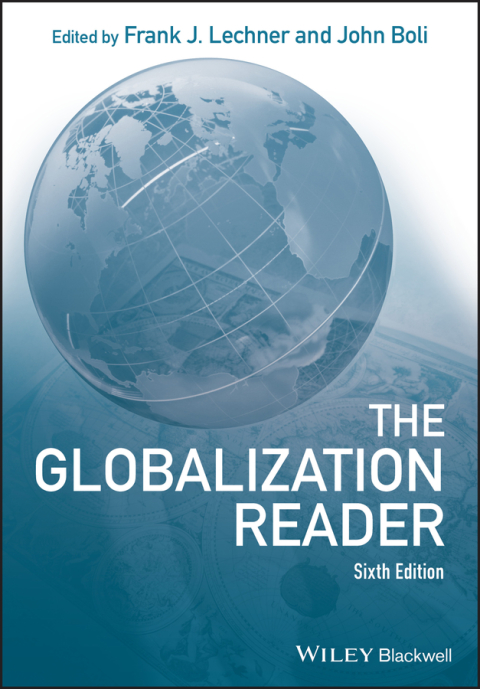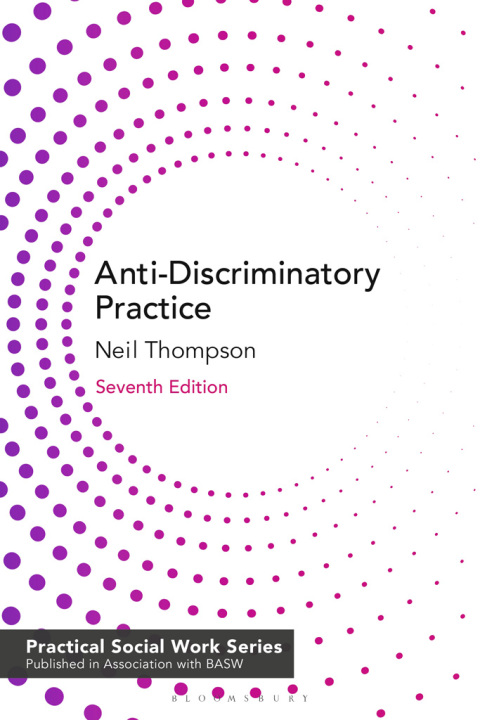Description
Efnisyfirlit
- Cover
- Preface to the Sixth Edition
- General Introduction
- Note on Selections
- Part I: Debating Globalization
- Introduction
- 1 The Hidden Promise
- The Priority of Liberty
- The Open Society
- The Individual’s Prayer
- An Empire without End
- 2 How to Judge Globalism
- Global Interdependences and Movements
- Are the Poor Getting Poorer?
- Global Justice and the Bargaining Problem
- Altering Global Arrangements
- Institutions and Inequality
- Fair Sharing of Global Opportunities
- 3 The Elusive Concept of Globalisation
- Globalisation: The Analytical Tool
- Globalisation: The Political Agenda
- Globalisation as Humanitarian Concern
- The Moral Challenge
- 4 The Clash of Civilizations?
- The Next Pattern of Conflict
- Why Civilizations Will Clash
- The Fault Lines between Civilizations
- The West versus the Rest
- 5 The Millennium Development Goals Report 2015
- Overview
- Unprecedented Efforts Have Resulted in Profound Achievements
- Despite Many Successes, the Poorest and Most Vulnerable People Are Being Left Behind
- The Successes of the MDG Agenda Prove that Global Action Works. It Is the Only Path to Ensure that the New Development Agenda Leaves No One Behind
- Part I Questions
- Part II: Explaining Globalization
- Introduction
- World‐System Theory and Related Perspectives
- World Polity Theory
- World Culture Theory
- 6 The Modern World‐System as a Capitalist World‐Economy
- 7 Sociology of the Global System
- The Conceptual Space for Transnational Practices (TNP)
- Economic Transnational Practices
- The Transnational Capitalist Class
- Labour and the Transnational Capitalist Class
- Culture‐Ideology Transnational Practices
- The Culture‐Ideology of Consumerism
- The Theory of the Global System: A Summary
- 8 A Brief History of Neoliberalism
- Introduction
- The Moving Map of Neoliberalization
- 9 World Society and the Nation‐State
- Explanatory Models
- Isomorphism and Isomorphic Change
- Processes of World Society’s Impact on Nation‐States
- Conclusion
- 10 Globalization as a Problem
- The Crystallization of a Concept and a Problem
- Coming to Terms with the World as a Whole
- Globalization and the Search for Fundamentals
- Universalism and Particularism Globalized
- 11 Disjuncture and Difference in the Global Cultural Economy
- Part II Questions
- Part III: Experiencing Globalization
- Introduction
- 12 Waves in the History of Globalization
- The First Wave of Globalization: Jamaica
- Some Patterns in the First Wave
- The Second Wave of Globalization: North Dakota
- Some Patterns in the Second Wave
- 13 McDonald’s in Hong Kong
- Transnationalism and the Fast Food Industry
- Mental Categories: Snack versus Meal
- From Exotic to Ordinary: McDonald’s Becomes Local
- Sanitation and the Invention of Cleanliness
- What’s in a Smile? Friendliness and Public Service
- Consumer Discipline?
- Hovering and the Napkin Wars
- Children as Consumers
- Ronald McDonald and the Invention of Birthday Parties
- Conclusions: Whose Culture Is It?
- 14 The Transnational Villagers
- The MDC’s Accomplishments
- 15 Virtual Migration
- Spatial Integration
- Temporal Integration: Follow the Sun
- Globally Yours: Reconfiguring the Lifeworld
- 16 Fear and Money in Dubai
- Fantasy Levitated
- Gigantism
- War Zone
- 17 Outpatients
- Orbán’s Dentist
- 18 An Anthropology of Structural Violence
- 19 Crazy Like Us
- Junk Science and First World Medicine
- The Mega‐Marketing of Depression
- Early Adopters Have Second Thoughts
- Part III Questions
- Part IV: Globalization and the World Economy
- Introduction
- 20 China Makes, the World Takes
- 21 Commodity Chains and Marketing Strategies
- Trends in the US Athletic Shoe Market
- Nike Corporation: Competition, Upgrading, and Innovationin a Commodity Chain
- Conclusions
- 22 The Sticky SuperpowerThe Economist
- Power through Neglect
- 23 Global Income Inequality by the Numbers: In History and Now
- 24 The Bottom Billion
- Traps, and the Countries Caught in Them
- The Role of Growth in Development
- 25 The Global Financial Crisis and Its Effects
- A Brief Chronology
- Underlying Causes
- The Initial Economic Impact
- Policy Responses
- 26 The Twin Excesses – Financialization and Globalization – Caused the Crash
- 27 Globalism’s Discontents
- Beneficial Globalization
- The Darker Side of Globalization
- Lessons of Crisis
- The Costs of Volatility
- The Governance of Globalization
- Governance through Ideology
- An Unfair Trade Agenda
- Global Social Justice
- Part IV Questions
- Part V: Globalization and the Nation‐State
- Introduction
- 28 The Declining Authority of States
- The Neglected Factor – Technology
- The Second Neglect – Finance
- Politics, Power and Legitimacy
- 29 Global Organized Crime
- The New Criminality
- Criminalization and the Rise of the State as a Courtesan
- 30 Has Globalization Gone Too Far?
- Sources of Tension
- The Role of National Governments
- 31 The Individualization of Society and the Liberalization of State Policies on Same‐Sex Sexual Relations, 1984–1995
- Changes in State Policies on Homosexual Relations
- Two Broader Contexts
- Overall Cultural Individualism
- Individualized Gender Equality
- Linkages to World Society
- 32 Abortion Liberalization in World Society, 1960–2009
- Introduction
- Background
- Results
- Discussion and Conclusion
- Part V Questions
- Part VI: Global Governance
- Introduction
- 33 The International Monetary Fund
- The Effects of IMF Programs on the Balance of Payments
- Economic Growth
- Income Distribution and Social Spending
- Conclusion
- 34 ISO and the Infrastructure for a Global Market
- The ISO Network and Its Voluntary Consensus Process: The Actors and Why They Are Involved
- A Standard and Its Consequences
- Setting the Standard
- 35 Global Health Governance
- Introduction
- 36 The Bill & Melinda Gates Foundation’s Grant‐Making Programme for Global Health
- Introduction
- The Gates Foundation’s Grant‐Making Programme
- 37 IMPACT
- The Ten Principles of the UN Global Compact
- Taking Root: The Global Spread of Sustainability
- Into the Fold: Expanding the Scope of Corporate Sustainability
- Part VI Questions
- Part VII: Globalization, INGOs, and Civil Society
- Introduction
- 38 NGOs and Climate Crisis
- Mixed Bunch
- Trends in Climate Work
- Fragmentation and Diverging Interests
- Common Denominator: Two Degrees
- First Line of Conflict: Burden Sharing between North and South
- Second Line of Conflict: Market Mechanisms vs. System Change
- Local vs. International
- Conclusion
- 39 The Evolution of Debates over Female Genital Cutting
- The Health Compromise
- Women’s Rights as Human Rights
- 40 Women’s Human Rights and the Muslim Question
- Human Rights Discourse in Practice: The One Million Signatures Campaign
- 41 World Culture in the World Polity
- An Historical Overview of the INGO Population
- World Development, INGOs, and Capitalistand Interstate Systems
- INGOs as Enactors and Carriers of World Culture
- Conclusion
- 42 Closing the Corruption Casino
- 43 Trading Diamonds Responsibly
- Global CSR Norms: Opportunities for the Conflict Diamonds Campaign
- Translating Norms into Practice: The Kimberley Process
- 44 Poverty Capital
- Fall from Grace?
- Homegrown Institutions
- POVERTY TRUTHS
- The Conditions of Protection
- Part VII Questions
- Part VIII: Globalization and Media
- Introduction
- 45 Cultural Imperialism
- “Watching Dallas”: The Imperialist Text and Audience Research
- Multinational Capitalism and Cultural Homogenisation
- 46 Mapping Global Media Flow and Contra‐Flow
- Localisation of Global Americana
- ‘Subaltern’ Contra‐Flows: Anti‐Hegemonic or Pro‐Americana?
- Transnational Telenovelas
- Hybridity as Hegemony
- 47 Hybridity and the Rise of Korean Popular Culture in Asia
- What is the Korean Wave?
- Korean Media Liberalization and Development
- 48 Landing of the Wave
- Brazil
- Peru
- Research Design and Results
- 49 Watching Big Brother at Work
- The Rise of Popular Factual Entertainment
- Making it Aussie: Indigenising an International Format
- Producing Big Brother
- Developing a Fan Base
- Big Brother Online
- 50 Bollywood versus Hollywood
- Introduction
- Bollywood and Third Cinema
- ‘Hollywood Raises Hell in Bollywood’
- Conclusion
- 51 Why Hollywood Rules the World, and Whether We Should Care
- Why Clustering in Hollywood?
- The Drive towards Clustering
- American Cultural Imperialism?
- Part VIII Questions
- Part IX: Globalization and Religion
- Introduction
- 52 Bin Laden and Other Thoroughly Modern Muslims
- The Islamists’ Roots in Secular Education
- Modern Goals, Modern Methods
- The Radical Minority
- 53 Globalised Islam
- 54 The Christian Revolution
- The Rise of Christendom
- 55 American Evangelicals
- Introduction
- American Evangelicalism: Vanguard of a Transnational Religious Movement
- The Language of the Market
- The Language of Multiculturalism
- Conclusion: An Unintended Gospel of Modernity
- 56 Religious Rejections of Globalization
- Religion and Antiglobalization Activism: The Case of the Debt Movement
- Religion and Antiglobalization Discourse
- Religion and Alternative Visions of Globalization
- 57 The Decontexualization of Asian Religious Practices in the Context of Globalization
- Flows of Asian Global Religious Practices
- The Modern Fascination with the Self
- Decontextualizing Asian Global Religious Practices
- Psychology and Meditation
- Part IX Questions
- Part X: Globalization and Identity
- Introduction
- 58 Moral Choices and Global Desires
- Meeting Sumitra
- Mapping a Family
- Women in the Village
- Articulating Womanhood
- Synthesizing an Identity
- Freedom and Possibility: Banishing the Ban Manche
- Globalization, Conflict and Self‐Definition
- 59 Global/Indian
- Navigating Cultural Terrain at Work: Corporate Perspectives
- 60 Strategic Inauthenticity
- Youssou N’Dour: “A Modern Griot”
- Whose Authenticity?
- 61 Orange Nation
- The Aura of 1974
- 62 Cosmopolitans and Locals in World Culture
- The Cosmopolitan Perspective: Orientation and Competence
- Cosmopolitanism and the Varieties of Mobility
- The Cosmopolitan at Home
- Conclusion: The Dependence of Cosmopolitans on Locals,and their Shared Interests
- 63 Cosmopolitanism & Humanism
- Part X Questions
- Part XI: Global Environmentalism
- Introduction
- 64 Greenpeace and Political Globalism
- Transnational Organizational Structure
- Greenpeace’s Politics
- Political Strategies
- 65 Environmental Advocacy Networks
- The Campaign against Deforestation in Sarawak
- Conclusions
- 66 Toward Democratic Governance for Sustainable Development
- The Rise of Domestic Opposition
- The Building of Transnational Linkages
- Taking on the World Bank
- The Genesis of the World Commission on Dams
- 67 Ozone Depletion
- 68 Movements for Climate Justice in the US and Worldwide
- Origins of Climate Justice
- The Case for Climate Justice
- Challenging Fossil Fuels and the False Solutions
- To the Summits and Beyond
- Into the Future
- 69 Speech of the IPCC Chairman, Rajendra K. Pachauri, at the Opening Session of the World Economic Forum, Davos, Switzerland
- Part XI Questions
- Part XII: Contesting Globalization: Alternatives and Opposition
- Introduction
- 70 Counterhegemonic Globalization
- The New Organizational Foundations of Counterhegemonic Globalization
- Labor as a Global Social Movement
- 71 The Global Justice Movement
- A Brief History of the Global Justice Movement
- A Movement Against the Neoliberal Ideology
- Three Major Tendencies
- 72 The Twelve Assumptions of an Alter‐Globalisation Strategy
- 73 The Global South
- 74 Ecological Balance in an Era of Globalization
- The Three Waves of Globalization
- The Community, the State, and the Corporation
- Globalization as Environmental Apartheid
- Northern Dumping in the South
- People’s Movements for the Protection of Biodiversity and Collective Rights
- The Movement for Declaration of Community Rights to Biodiversity: The Case of Pattuvam Panchayat
- Navdanya: Seeds of Freedom
- Conclusion
- 75 Porto Alegre Call for Mobilization
- 76 When and Why Nationalism Beats Globalism
- Chapter One: The Rise of the Globalists
- Chapter Two: Globalists and Nationalists Grow Further Apart on Immigration
- Chapter Three: Muslim Immigration Triggers the Authoritarian Alarm
- Chapter Four: What Now?
- 77 The Globalization of Rage
- Part XII Questions
- Index
- End User License Agreement






Reviews
There are no reviews yet.